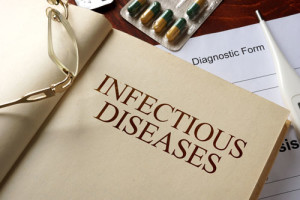 Though relatively untalked about Hepatitis B is on the rise and has reached the top of the chart as the number one most common infectious disease in the world affecting more than 2 billion people.
Though relatively untalked about Hepatitis B is on the rise and has reached the top of the chart as the number one most common infectious disease in the world affecting more than 2 billion people.
Here in the United States the CDC states that 2,000 to 4,000 people die yearly from HBV and related complications. They estimate that as many as 1.4 million here in the United States are currently infected.
What is Hepatitis B?
Hepatitis B is liver inflammation caused by the hepatitis B virus (HBV). After exposure, someone may not have symptoms for years. Hepatitis B can be diagnosed with a series of blood tests. (surface antigen test, core antigen test, antibody surface antigen test, liver function test). If you believe you have been exposed or are symptomatic it is important to see a doctor as soon as possible.
What to look for:
- joint pain
- dark urine
- lack of appetite
- indigestion
- fever
- weakness/sluggishness
- eye jaundice
Possible results of Hepatitis B when left untreated:
- liver scarring (cirrhosis)
- liver failure
- kidney cancer
- kidney failure
- liver cancer
*Another possible complication is Hepatitis D infection.
Treatments can include:
Injection of Hepatitis B Immune Globulin – a solution of antibodies that work against HBV
Antiviral medications – which can help fight the viral infection and reduce liver complications.
Liver transplant – if the damage is severe.
Acute Hepatitis B doesn’t generally require treatment and will clear on its own with bedrest.
The best course of action is to avoid contact and possible contamination in the first place. Hepatitis is highly contagious. The Hepatitis B vaccine is the best way to prevent infection all together.
Are you at risk?
Hepatitis B is spreads through direct contact with bodily fluids. Possible methods of transmission include:
- Contraction at birth if mother is infected
- Sharing needles
- Close contact with a person with HBV
- Sexual contact
- Sharing bathroom implements such as razors or toothbrushes
If you think you could have been exposed it is important to be examined as soon as possible. Please follow the link to find a board certified infectious disease specialist by visiting www.ipalc.org/find/
Share on Facebook




 Southwest Florida Medicine.com is dedicated to bringing you the very best health information available today!
Subscribe or check back regularly!
Southwest Florida Medicine.com is dedicated to bringing you the very best health information available today!
Subscribe or check back regularly!